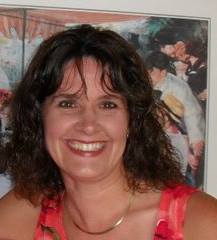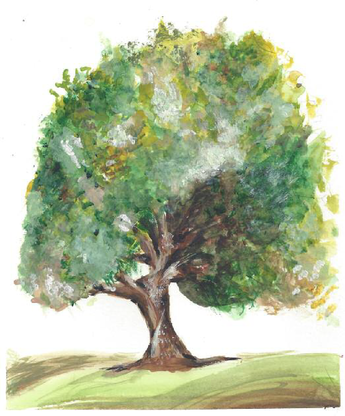I am writing this blog because, Melissa from HWHV, who knows this project took years to complete, said to me, “I would like to hear how the journey was for you, why you wanted to do it, how you got there, and what you hope for.” I want this to feel like a heartfelt conversation between friends, from my heart to yours. So, to tell you my story, this is where I must begin.
MY PERSONAL JOURNEY- Why did I want to do it?
My mom’s first husband was a Police Officer, shot and killed in the line of duty. My sister was a toddler, and my mom was pregnant with my brother. A year later, Mom married my daddy, a fellow Police Officer, ride-along partner, and friend to her fallen husband. Soon, I was born.
As the daughter of a Law Enforcement Officer, and granddaughter of a WWII Purple Heart and Bronze Star Recipient, it seemed natural to marry a man in uniform! My life as a wife of a B-52 Airman, included numerous TDYS, his combat deployment while I was pregnant, reintegration, and later, separation into civilian life.
After 10-years Enlisted active duty, he obtained undergraduate and graduate law degrees, and passed the Bar, while I waited tables full-time to cover our living expenses and went to school part-time. During this time, I completed an Associates, Bachelors, and Masters’ degrees, and had three more kids. When my youngest started school, we decided I would return for my PhD.
RESEARCH- How did I get there?
My PhD advisors said to choose a topic I believed in. I knew military spouses and first responder families serve silently and develop visible and invisible wounds from indirect trauma exposure. However, I found that no instrument existed to measure their issues. So, researchers and practitioners were using scales created for other groups to try to help this unique population.
Existing scales gave professionals words like compassion fatigue, secondary trauma stress, caregiver burden, and burnout to describe their workplace experiences. Servicemembers were assessed using post-traumatic stress checklists and combat/operational stress inventories. So, I contacted field experts, like Drs. Charles Figley and Brian Bride (on my PhD committee), and they agreed--spouses deserved an instrument made specifically for them and their issues.
Drs. Figley and Bride’s expert insight and personal encouragement led me to my dissertation goal: to develop an easy-to-use instrument FOR military spouses, made BY military spouses; and to truly honor those serving in silence, I had to use their words to give them their voice.
When completed, I wanted it to be a valid and reliable instrument that measures their issues. I wanted to make it available to all spouses, free of charge, and let them share it with friends. In order to do this, I had to find a financial sponsor who truly believed in what I was doing.
My husband became that sponsor. My Veteran paid for my labor of love, so I could give spouses and caregivers exactly what they needed and asked for. This heartfelt project allowed he and I the honor and privilege of giving back to the community that helped us when we needed it.
RESEARCH PHASES One, Two, AND Three- The Birth of the HALO Instrument
In Phase 1, many spouses (Melissa and Christina at HWHV included) reviewed my original 87 items compiled from qualitative interviews with spouses. After imperative constructive input, in Phases 2 and 3, 400+ participants took an anonymous survey to test its validity and reliability.
Spouses helped create a user-friendly tool for their self-care toolbox. No more using surveys designed for other populations that require the user to change words to fit them. No more borrowing constructs from other professions to describe their overall phenomenon. The four constructs Role Overload, Intrusive Arousal, Social Avoidance, and Emotional Distress (acronym: RISE) had very high validity and reliability with spouses, because these four constructs are specific to their issues, and the final 21 valid and reliable items are worded specifically for them.
MY HEARTFELT NOD TO THE LOVED ONES WHO HELPED ME
From my heart to yours, I NEED to say, “Thank you for coming alongside me on this journey. I am humbled by you. Your encouragement reassured me I could do it. Your cheering when I was weary helped me finish what we set out to do! Thank you for trusting me. Your words were so genuine, and your stories so raw, that they took my breath away. Your honesty in each item will always resonate strongly with those using the instrument. I named it “Health Assessment for Loved Ones- HALO” to remind you, YOU ARE LOVED, and that a HALO adorns your head.”
What I hope for The Health Assessment for Loved Ones- HALO © 2015
This instrument is for informational purposes ONLY. This is not a diagnostic tool-in other words, a ____ Total Score does not equal this diagnosis. I am working with spouses to understand how to interpret their scores. The four distinct HALO Constructs: Role Overload, Intrusive Arousal, Social Avoidance, Emotional Distress (RISE) – each has its own range of scores (low to high). Pay attention to your wellbeing if you are toward the high range of the score within each construct.
The acronym (RISE) embodies exactly what I hope Loved Ones will now be able to do. Like a Call to Action, I hope Loved Ones use this instrument to just check-in, help practice self-care, and become aware of their own well-being. When others are hurting, I hope they use it to help their friend, family member, doctor, social worker, researcher, etc. understand how they feel, and to identify which items resonate with them, and help them find resources to improve their health!
Where do I go from here? I NEED YOUR HELP AGAIN!
I need help to move the finished product forward. Getting the HALO into the hands of those that need it the most will not be done through journal articles and forums visited only by researchers and practitioners. I want to share it with large groups of spouses—both active duty and Veteran, as well as civilian provider groups that work with military spouses, Veteran caregivers, and first responder families—so they can help share it, too.
One such group was Her War Her Voice: When Melissa at HWHV responded, I told her “You'll love the final items and constructs that made it through the validity and reliability process-- they are SO what we always talked about!!
Melissa (HWHV) said, “I do love it! You have done amazing work! I so hope you are proud of yourself! … No words for how happy I am for you and alongside you…Where will you go from here? This is years for you!”
I answered honestly, “I'm not even going to pretend to know the answer to that...the next door will open, and I will KNOW in my heart it is the way to go! I know I want to write a book--written BY me FOR them without all the jargon…focused solely on them!”
Health Assessment for Loved Ones- HALO Facebook Page- to Share Findings and Future Uses
I constantly hear, "Can I share this with a friend", so I decided to put a PDF on a page and share the page so if someone needs the HALO or info, they can always find the page and me! I would never ask a spouse who has already endured so much, to speak their heart and bare their soul, and then leave them. As the wife of a combat Veteran, their issues are my issues--that's why it means so much to me!
I hope spouses use the HALO to help identify their issues. I hope it helps them put their concerns into words. I truly believe spouses will realize through these items that they are not alone in their experiences. Others are experiencing what they are experiencing.
BUT DON’T listen to me…just GO TO THE PAGE. Read the items on the instrument. Military spouses and Veteran caregivers poured out their hearts, shared their stories, and helped me to see how my military branch, while different from theirs, still belonged in the same family tree. We’re entwined and immersed in a deep and emotive existence.
Devoted to helping,
Christi
https://www.facebook.com/HealthAssessmentforLovedOnes

Christi received her Bachelor’s degree with Distinction in Psychology, Biology, and Sociology and her Masters of Public Health at the University of Oklahoma. As the top graduate, she received the Outstanding Student Award from both the College of Public Health and the Department of Health Promotion Sciences, as well as, the Joan K. Leavitt Commissioner of Health Award. She is a Master Certified Health Education Specialist and Compassion Fatigue Educator. In 2015, she graduated from UTEP’s Interdisciplinary Health Sciences Ph.D. program, and was awarded the College of Health Sciences Outstanding Dissertation award. Her dissertation, Health Assessment for Loved Ones: Development and validation of a new instrument to measure well-being in military spouses, focused on the effects of indirect exposure to trauma.


 RSS Feed
RSS Feed
